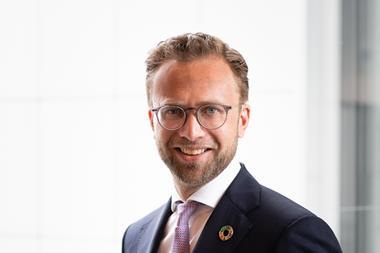Swedish pension fund AP7, the Dutch architects’ pension fund, Velliv and other European pension funds have signed a joint declaration urging companies with business in Myanmar to take action, given the risk of human rights violations under the military dictatorship.
Led by Norwegian asset manager Storebrand and three other organisations, the declaration called on firms to map their activities in Myanmar in this regard, and use their leverage in support of human rights – among other things.
Kamil Zabielski, head of sustainable investment at Storebrand Asset Management, said: “In the last months Storebrand has been conducting due diligence on companies with operations in Myanmar to try to establish which have links to the military junta and potential human rights violations.
“Now, through a global mobilisation of investors and capital, we are calling on all companies with links to Myanmar to take immediate action to identify and mitigate any risk of contributing to human rights harms,” he said.
The Norwegian firm said operating in conflict areas created risks and challenges for companies to manage and required access to reliable data on which investors could base their decisions. Storebrand said it had divested from companies in Myanmar due to human rights concerns before the military coup on February 1, and that the initiative was to raise awareness of the human rights situation and augment due diligence through collaboration.
“Sharing of resources and collaboration will make it easier for investors to engage companies and exercise more leverage,” Zabielski said.
In the declaration, the investor group – which also includes Sweden’s Folksam, KLP in Norway, the group staff pension fund of Italy’s Unicredit, P+ AP Pension and PKA from Denmark and Dutch pension funds PGB and VLEP – said the UN warned in 2018 and 2019 about risks to firms operating in Myanmar, particularly those with ties to the military’s two largest conglomerates, MEHL and MEC.
“However, multinational enterprises continue to operate in Myanmar either directly or through business relationships, some providing the financing, products, and services that the military needs to continue its violent regime,” they said.
By contributing to violations of human rights, they said the firms were exposing themselves and their investors to material legal, financial, and reputational risks.
On Friday, the UN High Commissioner for Human Rights Michelle Bachelet warned a further escalation in violence was unfolding across Myanmar.
State security forces had continued to use heavy weaponry, including airstrikes, against armed groups and against civilians and civilian objects, including Christian churches, she said.
Reuters reported that Myanmar’s junta-led ministry of foreign affairs had issued a press release rejecting Bachelet’s statement, and questioning the report’s accuracy and impartiality.
In April, Dutch pensions investor APG hailed an engagement success after Korean steel producer Posco C&C ended its joint venture with Myanmar Economic Holdings, a company controlled by Myanmar’s military.
PGGM, meanwhile, said it has asked all companies concerned about their ties with Myanmar’s military regime and what they are doing to address the current situation in the country.
The two Dutch pensions giants had been called out by action group Justice for Myanmar the previous month for investments in several mainly Asian firms with commercial links to Myanmar’s military.
Last month P+ said 11 of its portfolio stocks were under close scrutiny regarding links to the Myanmar junta, and that it might divest them.










